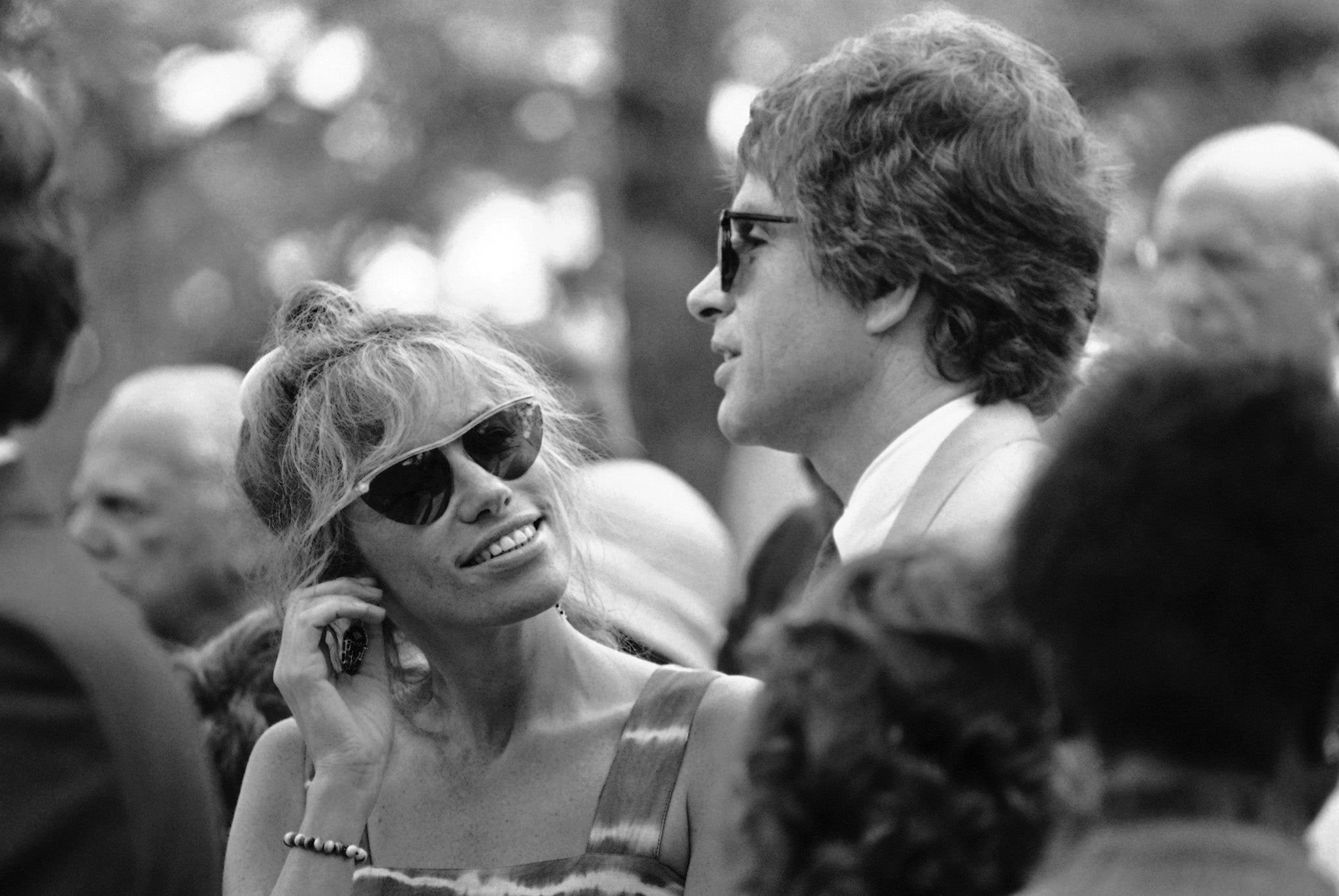Carly Simon ruined the fans’ fun with her Warren Beatty revelation
We don’t want the mysteries of pop classics solved


Your support helps us to tell the story
From reproductive rights to climate change to Big Tech, The Independent is on the ground when the story is developing. Whether it's investigating the financials of Elon Musk's pro-Trump PAC or producing our latest documentary, 'The A Word', which shines a light on the American women fighting for reproductive rights, we know how important it is to parse out the facts from the messaging.
At such a critical moment in US history, we need reporters on the ground. Your donation allows us to keep sending journalists to speak to both sides of the story.
The Independent is trusted by Americans across the entire political spectrum. And unlike many other quality news outlets, we choose not to lock Americans out of our reporting and analysis with paywalls. We believe quality journalism should be available to everyone, paid for by those who can afford it.
Your support makes all the difference.A popular culture mystery, that has been running for over four decades, has been solved. Carly Simon has revealed the object of her classic song "You’re So Vain". The song, or at least one of its verses, is she now admits about the Hollywood actor and her former lover Warren Beatty.
For decades there has been speculation about the target of the ultimate revenge song. James Taylor and Mick Jagger were among those thought to be in the firing line, though as Carly Simon once pointed out, Mick Jagger actually sang backing vocals on the song, and it might be going a bit far even for her to target someone who actually worked on the track in the studio.
So, Warren Beatty it is. Carly Simon has broken her long silence. But she shouldn’t have done. She should have shut up. What she fails to realise in her belated spilling of beans is that fans love cultural mysteries.
Take another example from the same era. The film Don’t Look Now has a sex scene involving Julie Christie and Donald Sutherland, who play husband and wife in the movie. It’s long been suggested that this was more than mere acting, it was actual sex captured on camera. Christie was asked about it in a recent interview, but said she would not dream of saying what really happened now, as it would ruin such a great topic of speculation and discussion for so many movie buffs.
That is the correct attitude. Don’t put a stop to the speculation, conversation and online chat about key moments in popular culture. We may think we know who Bob Dylan had in mind with "Just Like a Woman" or "Like a Rolling Stone", John Lennon with "Norwegian Wood" and a host of other classic songs of the last half century. But that doesn’t mean that we want the musicians to come clean and reel off a list of names behind the songs.
Besides, giving away too much may not be in the musicians’ interests either. As Adele found with her biggest hit, "Rolling in the Deep", tell the world it’s about an annoying ex, and that annoying ex might mischievously demand royalties for inspiring a global hit. Who knows, perhaps an ageing and newly over-sensitive Warren Beatty is right now instructing his attorney.
Much more importantly, though, giving the game away shows a misunderstanding of what consumers of popular culture want, and arguably a misunderstanding of culture itself. Fans enjoy mystery and the opportunity to speculate, and culture thrives on ambiguity.
The fan’s psychology is complex. Years of speculation does not mean we want an answer. It means the opposite. It means that speculation and intrigue are integral parts of a cultural enigma. Carly Simon is one of the great singer-songwriters, but she’s a poor psychologist.
Is the BBC scared of Till death Us Do Part?
The death of Warren Mitchell naturally received less coverage than it would have done in normal times, as the news was dominated by terrorism. But I did expect that the BBC might show an episode of Till Death Us Do Part to mark the actor’s most famous role of Alf Garnett, which he played for many years from the mid-sixties onwards in the seminal comedy. But, most unusually, the BBC didn’t mark the passing of one of its biggest former stars by showing an episode of his best-known show in the usual way. Till Death Us Do Part was, of course, full of racial insults and bigotry. I have to admit I was never fully convinced by the justification that viewers would laugh at Alf not with him. Nevertheless, perhaps the BBC should have allowed people to make up their own minds on how it would fare in today’s climate.
Benedict Cumberbatch needn’t beat himself up
Benedict Cumberbatch came up with a rather surprising remark, speaking to The Independent this week. Talking about wearing the coat that he wears for his role as Sherlock in public, he said he became self-conscious about being photographed, adding: “I might be seen wandering out and about wearing his costume and seal my reputation as being a dick.” There speaks an actor, insecurity bordering on paranoia. Most of us might think that Benedict Cumberbatch has a reputation for being debonair, talented and an object of adulation. But the man himself thinks his claim to fame is “being a dick.” Makes me warm to him even more.
d.lister@independent.co.uk; Twitter:@davidlister1
Join our commenting forum
Join thought-provoking conversations, follow other Independent readers and see their replies
Comments